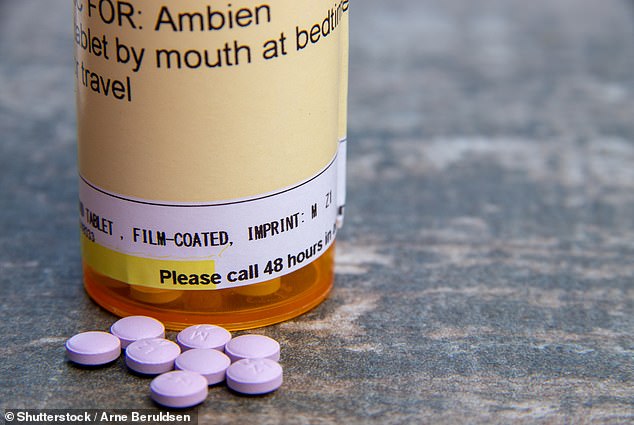Trump’s White House pharmacy distributed medications to aides, such as candy, including stimulants and sleeping pills, report shows
Prescription drugs, including controlled substances, were distributed indiscriminately to White House staffers during previous presidential administrations, with little to no record-keeping or appropriate care and limited oversight, a new report finds.
An 80-page document from the Defense Department’s Office of the Inspector General found that the White House medical unit committed “serious and systematic” violations of protocol, used taxpayer dollars to unnecessarily purchase expensive brand-name drugs and provided care and provided medicines to the staff. who were not eligible for such services from the clinic.
The investigation began in 2018 after the DoD received complaints that a senior military medical officer at the clinic had “engaged in improper medical practices.”
The report is based on data and regulations from 2017 to 2019 – when former President Donald Trump was in power – and interviews with more than 120 officials, including military providers and pharmacists.
The report stated, “All phases of the White House pharmacy operations had serious and systemic problems.”
The report is based on data and regulations from 2017 to 2019 – when former President Donald Trump was in power

Over a three-year period, the medical unit spent $46,500 on brand name Ambien and $98,000 on Provigil
Officials concluded in the report that while Trump served in the White House, the pharmacy allegedly kept chaotic, “handwritten records” to track the amount of medications in its possession and that pharmacy employees freely dispensed prescription and over-the-counter medications.
“These data often contain errors in medication counts, unreadable text, or crossed-out text that was not properly annotated,” the report said.
One witness told investigators that the medical unit would prepare “pre-packs of medications” for several staff members prior to overseas travel, containing a mix of medications in plastic bags.
A witness statement in the report reads: “That’s usually Ambien or Provigil and usually both…often it’s like five tablets in a ziplock bag. Traditionally we handed these out.’
The witness added: ‘often the senior staff would come by or their staff representatives… would come by the residency clinic to pick it up.
“And it was very much a, ‘Hey, I’m here to pick this up for Mrs. And the expectation was that we would just pass it on.”
The report states that a handwritten note was found from March 2014 – when former President Barack Obama was in office – with instructions to distribute medications, “including all controlled substances,” to representatives of patients for whom the medications were intended. without the need to present them’. the patient’s identity card.’
Controlled substances require special handling and registration by pharmacies because they pose a risk of dependence and abuse.
And over-the-counter medications were left in “open bins” for people to take as and when they wanted.
Another witness was asked to give someone a Provigil “as a parting gift before leaving the White House.”
The clinic, which is overseen by the White House Military Office, also spent excessively on brand-name drugs despite being required to use cheaper, generic versions.
Over a three-year period, the medical unit spent approximately “$46,500 on brand-name Ambien, which is 174 times more expensive than the generic equivalent,” the report said.
Ambien is the brand name of zolpidem, a sedative used to treat insomnia.
The company also spent “an estimated $98,000 on brand-name Provigil, which is 55 times more expensive than the generic equivalent.”
Provigil is a brand of modafinil, a stimulant used to treat excessive sleepiness caused by sleep disorders such as narcolepsy and sleep apnea.
Both Ambien and Provigil are controlled medications, meaning a prescription is required to obtain them.
Investigators wrote: “The White House Medical Unit provided a wide range of health care and pharmaceutical services to ineligible White House personnel in violation of federal law, regulation and DoD policy.
“In addition, the White House Medical Unit provided prescription medications, including controlled substances, to ineligible White House staff.”
According to the report, the White House Medical Unit admitted approximately 60 patients to its clinic but provided “health care by proxy” to 6,000 White House and other government employees and contractors, many of whom were not entitled to it.
In its conclusion, the DoD OIG recommended that the unit be placed under an “oversight plan” led by senior Department of Defense health officials.
Stronger policies for the control and management of prescription drugs are needed, the report said.
It also recommended that the White House “establish controls for the eligibility of White House patients within the military health care system.”
